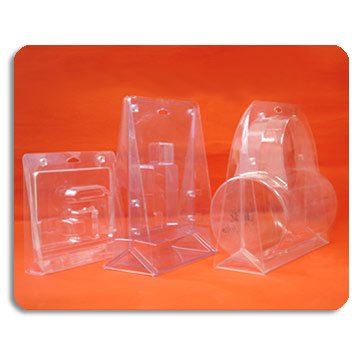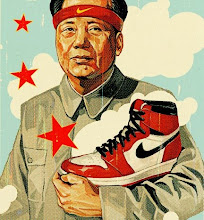For those of you who haven’t lived in the UWS of Manhattan or haven’t gone to school at
Columbia, you probably don't know that much about Koronet's pizza.
Koronet's Pizza- between 110th and 11th on broadway is THE best pizza in nyc. TRUST ME. just go there. their pies are about 3.5' in diameter, and the slices are almost two feet long... fun! cheap! a definite neighborhood hangout if there ever was one.
http://www.citynoise.org/article/71
This place is small, cozy and friendly. The Hispanic guys behind the counter are quick and efficient and after a couple of drinks themselves, they become very generous. The best part about Koronet’s (aka K-nets) is that during the weekend, it is open until 3am. During my college days, I definitely made many a trips there for a last minute pit-stop before going to bed after drunken night bar-hopping the Columbia neighborhood. In fact, the first night I spent at Columbia included drinks at the West End (RIP) and pizza at Koronet’s. That greasy pizza just hits the spot.
The Chinese version of Koronet’s pizza is the neighborhood sidewalk barbeque. These are small mom and pop operations on the side of the street where all they need is a makeshift grill, meat and veggies on a stick, and a few chairs and tables. No matter where you go in China, you’ll find these little operations EVERYWHERE.
Last night I was walking around with my cousin, Simon, just south of the Shanghai Hotel (上海宾馆) in Shenzhen. We had already been drinking for a while, but wanted to go buy some snacks for the night. After getting our assortment of chips, crackers, cherry tomatoes and tangerine oranges, we started walking back to the KTV room all our friends were at.
In the middle of our walk, Simon decided to stop at one of these little bbq places and get some chicken wings. While waiting for the thing to cook, we hung out and chatted. The husband/wife team operating the place were very nice people. They gave us chairs while we waited and chatted with us. Being interested in their little business, I asked them about how easy it was to make money. It turns out that the margins were decent 30% to 40% but most of the profit depended on the volume of sales. In a given weekend night, they could sell as much as 700 yuan worth of food (remember: each the individual bbq skewers cost between 2 and 5 yuan. That’s a pretty decent side business for migrant workers trying to make a buck or 2 at night.
Before we were done with the conversation, we discussed the costs of the coal, the veggies and meat, ect. The highest costs came from the meat they buy as well as their makeshift bbq grill. Each one of these stainless steel U-shapped sheets cost about 3 yuan each. However, they prepare a lot of them each night.
Without understanding the reasons behind that (I was a little tipsy), the husband, who was in charge of the grill quickly took the top grill piece of and placed it (with the meat) away from the grill. A split second later, a pickup truck/minivan with 3 guys quickly stopped right next to us. A person came quickly came out, went over to the makeshift grill and dumped the coals on the ground. In my confusion, I thought these people worked for the little business and were going to help them change their coal to a new batch. However, after the guy dumped the coal out, he went back into his car and drove off.
What just happened!?!?
“Why did a guy jump out and dump your coal on the ground?” I asked.
The husband/wife explained that those guys were cops who’s job was to enforce business permits. Since they did not have one and were doing their own thing on the street, they were something illegal. Who knows what kind of “cops” they were.>
Not completely understanding, I asked, “why didn't he just destroy your stand and throw your food on the ground?”
It turned out that these police never were violent, but only confiscated the different 3yuan makeshift grills. Without going into too much detail, the couple just continued saying how difficult it was to make money, while simultaneously placing the dumped coals back into the makeshift grill to finish our chicken order.
Before our food was done, the same truck made a U turn and came back in our direction. I could see it coming for a ways away and I became quite nervous for the couple. They don't make that much money in the business and have to constantly look over their back in search for police who could, at any time, screw them over.
After Simon’s chicken finished cooking, were continued walking back towards our private room singing KTV. Before we could walk too far, a different van pulled over. This time, the husband quickly ran over to his supply of grills to replace the one that was about to be confiscated. While stopped to watch from a distance, the husband quickly went back to his stand with his brand new grills before the police even left.
“What the hell is he doing,” I asked Simon. “Isn’t his new grill going to be taken away too?”
Before he could answer, the husband walked over to the police man who was confiscating his grill and GAVE him his new one!
WHAT JUST HAPPENED?! WHAT IS GOING ON?!
While walking with Simon and talking about this, I finally understood what was going on:
- The police officers could never arrest any of these people because there are just soo many of them. In the general area I was in, there were at least about 1000 different little bbq’s being run at that time of night. The jails can’t hold that many people.
- It was not in the officer’s interest to tear up the stand. It’s his job to deter these kinds of business, but in actuality, these officers were probably from the countryside as well and knew how hard it was to earn money.
- The business owners know that the officers have a certain “quota” for confiscated grills per night. Therefore if they just gave the officers the grill and extra ones, the officers would 1. leave them alone, 2. leave others alone and 3. not come back in a while. I kind of compare this to American State Troopers and their monthly “quota” for speeding tickets.
- A specific system of conduct has been created for these interactions…a social contract, if you will, between the illegal businesses and the police.
A couple of hours after this event, I revisited it with Simon while we were playing pool. He added something very interesting to the situation.
It seems that after the teams of 3 would confiscate about 50 grills per night. Afterwards, they would SELL the grills back to the operators of these businesses the next day for 3yuan!
HAHA. How crazy is this? It kind of reminds me my senior year International Politics class when we analyzed the illicit economies in Kosovo in the late 1990s. (If you don't know, a black market was formed where one side was basically supplying the other side with weapons that was shooting back at them.)
I really think this event shows how business is done in China. Of course, it’s true that not all business leaders and government officials are corrupt, but from my experience, it seems semi accurate.
For any business to be able to operate properly, it needs
- to find a good market (people wanting munchies after going out at night)
- to make decent margins/profit
- to work within the establish social standard of interaction between the government and the specific industry
- to “pay off” the proper people, whether its for building permits or restaurant licenses (the 3 yuan grills) so that they don't bother you too much
Ultimately, its true that the officials always have the upper hand. In this story, they confiscated the grills and resold them back to the businesses, only to confiscate them later…a revolving cycle. The funny thing is that this governmental advantage is very much part of the Chinese tradition where the government will, do and should profit from any of its businesses making a profit. Think of it as a tax…







